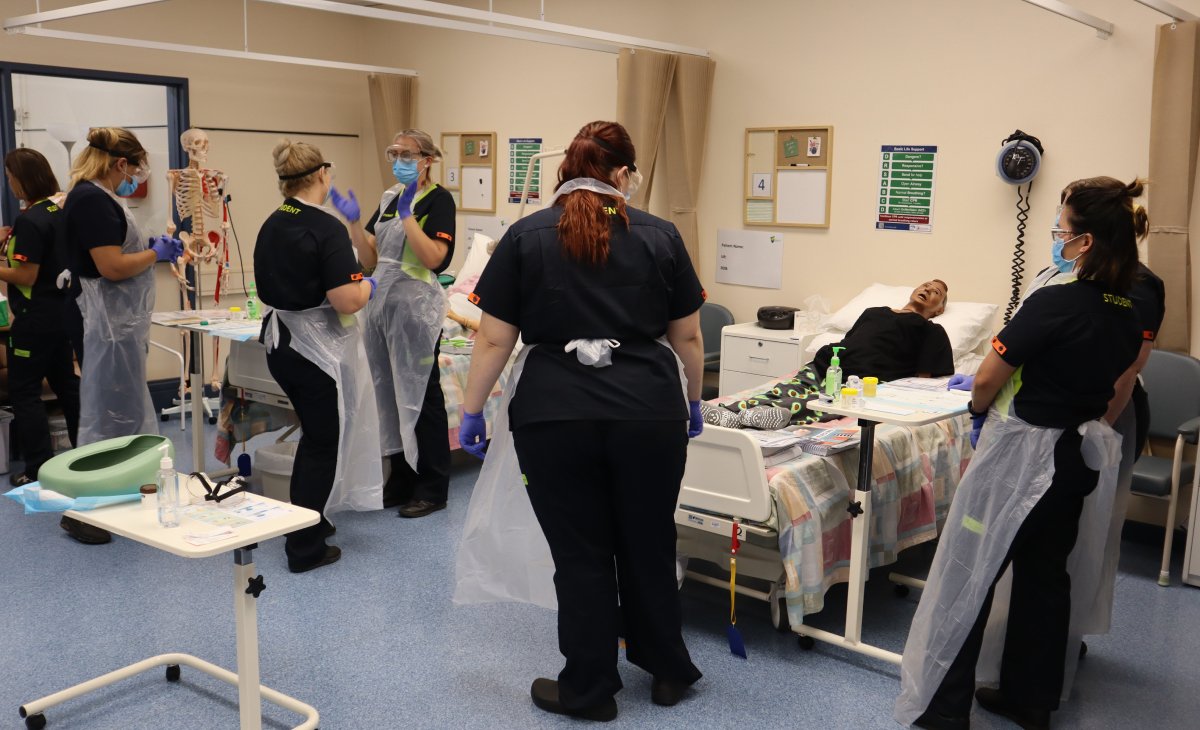From The Guardian's Article, written by Aston Brown and posted on the 26 May 2024.
Click here to view the original article.
The article reads:
Broken Hill in far western New South Wales is three hours’ drive from the closest university campus. Most school leavers need to move to Adelaide, 500km away, to pursue higher education.
For 22-year-old Hannah Maalste that distance is insurmountable.
“Nobody in my family had ever gone to university, I didn’t even know it was a thing,” she says.
Maalste left home at 17 and didn’t receive an ATAR when she finished high school. “I was really just focused on where I’d be living for the next few months,” she says. “I would have to leave school and find a job to support myself, that was the expectation.”
Then she discovered the Broken Hill university study hub. It’s one of 35 operating across rural Australia that give people studying online access to study spaces, high-speed internet, computers and pastoral advice.
Staff helped Maalste navigate the bureaucracy of pathway courses and degree jumping required to enrol without an HSC. A year on she’s studying a bachelor of health and medical science alongside 180 other students registered at the centre, and plans to transfer to paramedicine in August next year.
Hubs support students who would “otherwise be at home by themselves, with a bad internet connection and essentially isolated”, says Prof Verity Firth, the vice-president of societal impact, equity and engagement at the University of New South Wales.
“Whether or not you are studying the same subjects at the same university, it somewhat doesn’t matter, you get this sense of camaraderie, you get a cohort” she says.
It’s an option shown to be particularly advantageous for students from disadvantaged backgrounds who may not be financially able or want to move to an urban university campus far from home.
The federal government in March announced a further $66.9m to establish 20 additional regional hubs and up to 14 in the outer suburbs of major cities. This followed the Australian universities accord’s interim report that recommended greater investments to make university access more equitable in the bush.
About half as many people in regional Australia now hold university degrees, compared with people living in capital cities.
At hubs managed by the non-for-profit Country Universities Centre, including the Broken Hill site, 57% of students are from low socioeconomic backgrounds. In the broader university population, that number falls to 17%.
Firth says older women who are in the workforce but want to upskill are the largest cohort using the program.
Women make up 75% of all students at regional hubs and more than half of all students are over 25.
“Woman can leave the kids at home with their husbands at night and go into the hub and are able to completely concentrate on their studies – it gives them the time and space to do that,” Firth says.
In Cooma, a small town 100km south of Canberra, a hub has been operating for more than a decade.
“Higher education is now visible in the regions,” says Danielle Keenan, an equity fellow at the University of Technology Sydney. “There has been this kind of culture of ‘why would you bother’ with higher education but that’s changing.”
The number of people in the Cooma area who identify themselves as university students grew by 64% in the 10 years to 2021, census data shows.
Broken Hill and other regions that have opened hubs have experienced a 25% increase in enrolments on average between 2016 and 2021.
Keenan says many hubs have exceeded enrolment targets. “Uni is not for everybody but it provides the access to a choice that didn’t exist before,” she says.
Health is the most popular field of study – hopeful news for understaffed regional hospitals, according to the National Rural Health Alliance’s chief executive, Susi Tegan.
A report commissioned by the NRHA last year found an estimated $6.5bn annual underspend in regional healthcare. “A very large reason for that is because we don’t have the workforce,” Tegan says. “Why should people in the country put up with less?”
Maalste plans to stay in Broken Hill when she graduates in about three years. It’s where she was born, raised and now lives with her partner. It’s home.
“I knew I wanted to work with people and I like being out in the community, being a paramedic fits that,” she says. “It’s what I want.”
If you'd like to read the original article, click here.


